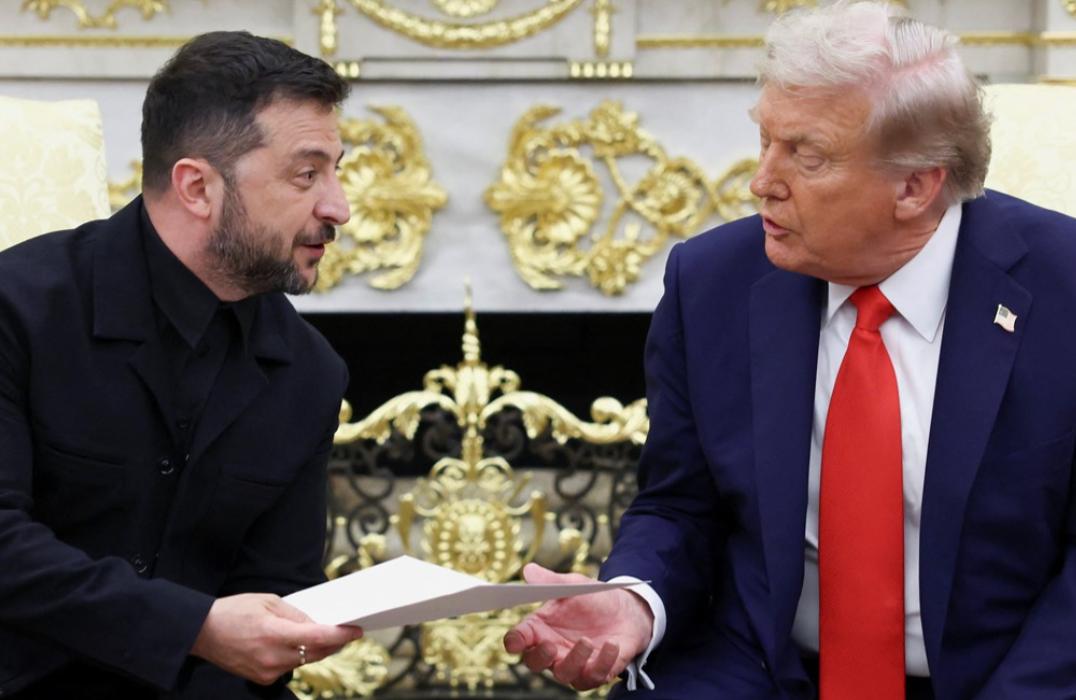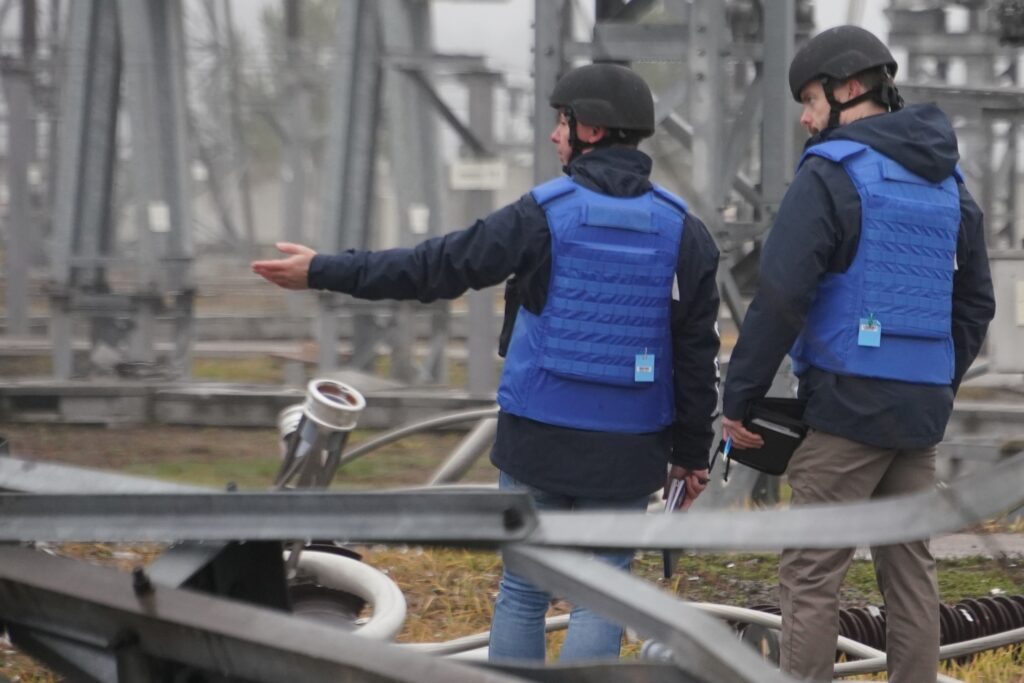Compromise instead of victory: what does “parity exchange” mean and who supports it: analysis of signals from Washington and Brussels
19 August 19:06 ANALYSIS FROM
ANALYSIS FROM Recent weeks have significantly changed the diplomatic landscape around the war in Ukraine. President Volodymyr Zelenskyy’s visit to Washington, his meeting with Donald Trump, and the active involvement of EU and NATO leaders indicate a new phase in international efforts to resolve the war. At the same time, there were also contradictory statements, including the possibility of “mutual territorial compromises ” and a possible personal meeting between Zelenskyy and Vladimir Putin.
Meanwhile, NATO Secretary General Mark Rutte said in an interview with Fox News that about 30 countries, including Japan and Australia, have been working for several months to create a system of security guarantees for Ukraine. The initiative is led by British Prime Minister Keir Starmer and French President Emmanuel Macron. These guarantees should come into effect after a long-term ceasefire or a full-fledged peace agreement is concluded. The participation of the United States in this system has not yet been finalized – this will be discussed in the near future.
Rutte also noted that during the meeting in Washington, D.C., between Trump, Zelenskyy, and European leaders, no agreement was reached on the presence of European troops in Ukraine, and the role of the United States in this has not yet been specified.
However, the question arises: how reliable can these guarantees be in the event of a new Russian offensive? And do the current peace initiatives conceal concessions that are contrary to the interests of Ukraine and its Constitution?
So what exactly is behind the latest diplomatic developments, what scenarios should Ukraine prepare for, what threats and opportunities does the new format of negotiations bring, and is there a realistic prospect of ending the war in the near future?
Change in rhetoric: a signal of readiness for dialogue
President Volodymyr Zelenskyy’s recent statements indicate a change in tone regarding possible compromises in the war with Russia. Not long ago, the Ukrainian side was making categorical statements about the complete absence of concessions, and now a new realism is emerging in the discussion, says Serhiy Yahodzinsky, Doctor of Science, Professor, Vice-Rector of the European University, in an exclusive commentary to [comersant].
“For me, it is important that Zelensky did not make such statements yesterday that were heard before… that nothing at all would happen. There will be no compromises at all,” the professor notes.
“This change in rhetoric may indicate preparations for a real negotiation process, in which the parties have already exchanged preliminary signals and identified “red lines.” The likely understanding looks like an exchange of political and security guarantees rather than territories, the expert says.
“The exchange of territories discussed in Alaska is not really an exchange, but a giveaway of Donbas territories… and in return we have to get Putin’s assurances that he will not attack us. You know, this is a kind of story and not a very pleasant one.
The professor suggests that we are talking about partial concessions: Ukraine could get back important objects and regions in exchange for a temporary agreement to the status quo in other areas.
Possible terms of exchange: what Ukraine could get
Among the possible elements of the “parity exchange” Serhiy Yahodzinsky states:
- the return of the Kinburn Spit;
- regaining control over the Zaporizhzhia NPP and the adjacent infrastructure;
- access to flooded areas necessary for water supply to the plant;
- withdrawal of Russiantroops from Sumy and Kharkiv;
- an air ceasefire and an end to the shelling of cities.
Instead, according to the expert, Kyiv may temporarily agree to the de-occupation of the “land corridor” between Crimea and Russia. The reaction of the Ukrainian army remains an important factor.
It’s hard for me to imagine Zelensky coming to the front line and saying: “You know, we’ve fought enough, we’re retreating”… There may be a situation where he is not heard, not listened to, and the order is not executed,” says Yahodzinsky.
“This indicates tension between the political leadership and the mood at the front, where some fighters may not accept the idea of concessions.” Another key element is the possible presence of a foreign peacekeeping contingent.
We have to talk about a foreign contingent that will patrol the territories and monitor the ceasefire. Unfortunately, there will be no American or European troops.
Among the potential partners in this role, Germany stands out as a non-nuclear country with a historically restrained security policy and good contacts with Russia.
The role of the United States is an important indicator of change. If Washington is ready to make peace with Moscow, it means a complete restructuring of its political, financial, and security strategy.
If the United States is willing to sign such a global peace agreement, it means that the entire structure is already in place – finance, analytics, intelligence, military…,” the vice-rector is convinced.
In such a scenario, the decisions of EU leaders, including Dutch Prime Minister Mark Rutte, become secondary.
Дивіться нас у YouTube: важливі теми – без цензури
The personal factor: Putin does not accept Zelenskyy
A separate barrier to personal negotiations between the two leaders is the deep inequality in perception.
Putin does not perceive Zelenskyy as an equal. “He was already president and fought two Chechen wars when Zelensky was still performing at KVN,” summarizes Serhiy Yahodzinsky.
“This psychological barrier can be critical, because personal contact between leaders is often the key to breakthroughs in complex conflicts.
Thus, peace is not synonymous with surrender, and the current signals from the Ukrainian side indicate a search for balance rather than acceptance of dictates. At the same time, the path to an agreement is complex and requires not only political will, but also the consent of society and the army. But are the parties ready for a real compromise? The answer to this question lies in future steps, not statements.
Author – Daryna Glushchenko
Читайте нас у Telegram: головні новини коротко









